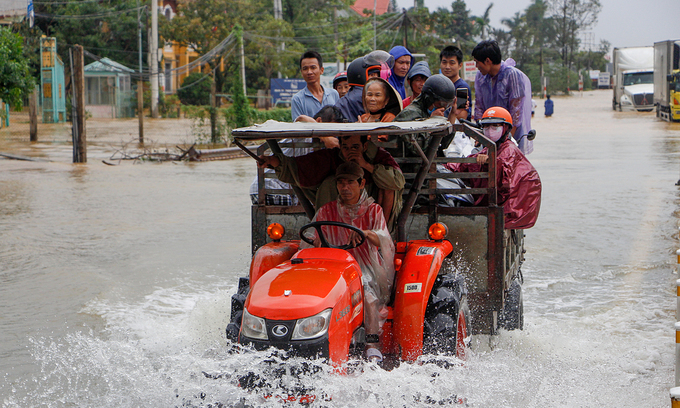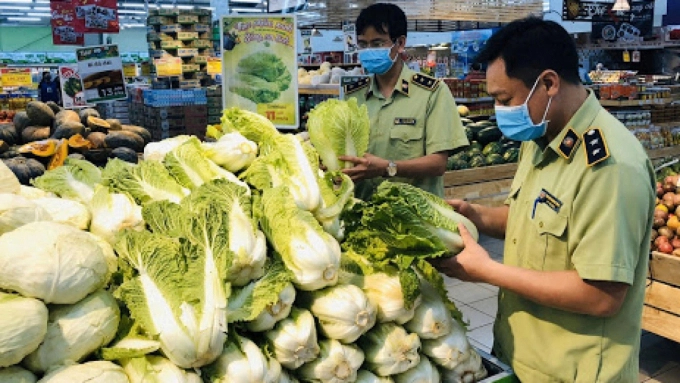May 18, 2025 | 11:21 GMT +7
May 18, 2025 | 11:21 GMT +7
Hotline: 0913.378.918
May 18, 2025 | 11:21 GMT +7
Hotline: 0913.378.918

On September 15, the Decree on establishing and administering the Disaster Management Fund will take effect.
The document explains that the off-budget state-owned financial fund has legal standing, a seal, and is permitted to establish accounts in the State Treasury and lawfully functioning commercial banks in Vietnam.
The central fund will be administered by the Ministry of Agriculture and Rural Development, while the provincial funds will be managed by centrally governed province and local People's Committees.
The fund is structured as a single-member limited liability corporation with the State owning 100 percent of the charter capital.
It will be accountable for assisting in the prevention and management of natural disasters for which the state budget has not yet funded or has not yet fulfilled the criteria; and for receiving, managing, and using financial resources.
Extreme catastrophes have become increasingly common in recent years, inflicting more harm to individuals and having a major economic effect.
Natural catastrophes like storms, floods, and drought cost VND37.4 trillion (US$1.6 billion) in damage in 2020, five times the amount lost the previous year, the Central Steering Committee on Natural Disaster Prevention and Control said.

The circular specifies the rates for evaluation and licensing of food safety-related circulation, import, certification, and publishing.
Concerning food safety fees, new circular prescribing charges related to food safety and the collection, remittance, management, and use thereof will take effect on September 19.
The circular specifies the rates for evaluation and licensing of food safety-related circulation, import, certification, and publishing. The cost for the evaluation of dossiers of registration of product announcements for health protection foods, medical nutritional foods, foods for special diets, and nutritional goods for children up to the age of 36 months is VND1.5 million per product.
Fees for the appraisal of dossiers for the registration of product announcements for mixed food additives with new uses, food additives that are not on the list of additives permitted to be used in food or are not used by the appropriate users regulated by the Ministry of Health are VND 500,000 per time and per product.
Fees for food shipping confirmation (excluding testing expenses) vary between VND 300,000 and VND 10 million per lot.
The cost for assessing and issuing certifications for exported food (free sale certificates, export certificates, and medical certificates) is VND 1 million per certificate.
Fees for evaluating the circumstances for practicing and doing business in the area of food safety range from VND 500,000 to 28.5 million each visit.
Translated by Sammuel Pham

(VAN) The decree on Extended Producer Responsibility (EPR) ensures transparent management and disbursement of support funds, avoiding the creation of a “give-and-take” mechanism.

(VAN) Hue City rigorously enforces regulations regarding marine fishing and resource exploitation, with a particular emphasis on the monitoring of fishing vessels to prevent illegal, unreported, and unregulated (IUU) fishing.

(VAN) Hanoi People's Committee has issued a plan on reducing greenhouse gas emissions in the waste management sector with 2030 vision.

(VAN) Vietnam's draft amendment to Decree No. 156 proposes a mechanism for medicinal herb farming under forest canopies, linking economic development to population retention and the sustainable protection and development of forests.

(VAN) In reality, many craft village models combined with tourism in Son La have proven effective, bringing significant economic benefits to rural communities.

(VAN) The international conference titled Carbon Market: International experiences and recommendations for Vietnam was successfully held recently in Ho Chi Minh City.

(VAN) According to the Project on rearranging provincial and communal administrative units, in 2025, the country will have 34 provinces/cities, 3,321 communes, wards, and special zones, and no district-level organization.